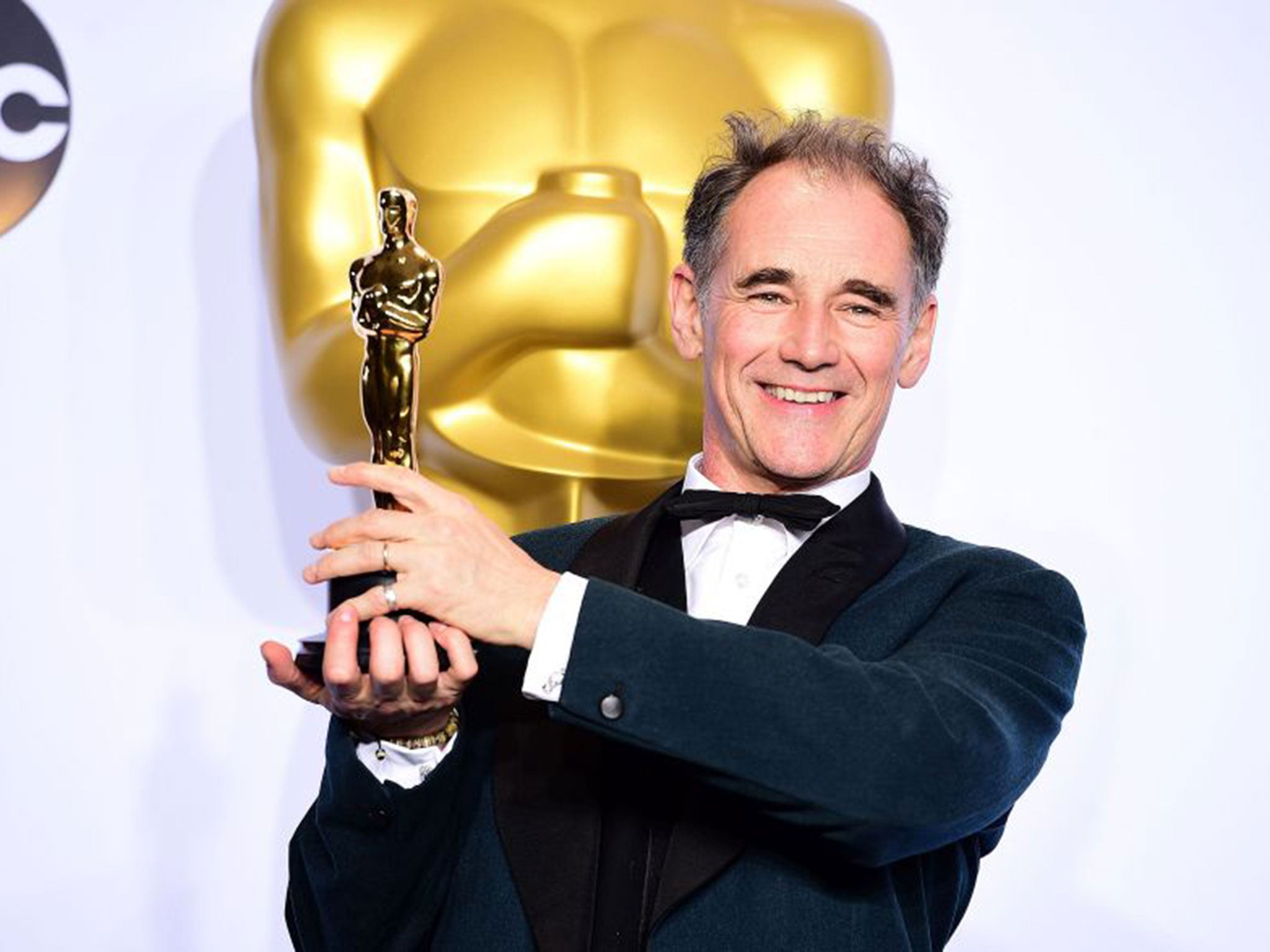Mark Rylance: The Oscar-winning 'newcomer' who refuses to play the Hollywood game
Rylance might easily have had a big screen career to match Daniel Day-Lewis, but dedicated himself to stage work instead

Your support helps us to tell the story
From reproductive rights to climate change to Big Tech, The Independent is on the ground when the story is developing. Whether it's investigating the financials of Elon Musk's pro-Trump PAC or producing our latest documentary, 'The A Word', which shines a light on the American women fighting for reproductive rights, we know how important it is to parse out the facts from the messaging.
At such a critical moment in US history, we need reporters on the ground. Your donation allows us to keep sending journalists to speak to both sides of the story.
The Independent is trusted by Americans across the entire political spectrum. And unlike many other quality news outlets, we choose not to lock Americans out of our reporting and analysis with paywalls. We believe quality journalism should be available to everyone, paid for by those who can afford it.
Your support makes all the difference.It’s a method-style performance of such intensity and subtlety that it seemed to herald the beginning of a major new screen career. In 1991, in The Grass Arena, Mark Rylance played John Healy, the working-class London boxer turned alcoholic. Healy becomes a petty criminal but learns how to play chess in prison – and excels at it. It was a role which Rylance immersed himself in – but in terms of a movie career, it wasn’t the launch of anything.
A quarter of a century later, Rylance has won an Oscar. Hollywood is reacting to him almost as if he is a newcomer. This, though, is more a case of him ignoring the movies rather than the other way round. He might easily have had a big screen career to match that of Daniel Day-Lewis, but he dedicated himself to stage work instead.
At least Steven Spielberg, who directed him both as the stoical, meticulous Russian agent in Bridge Of Spies and as the Big Friendly Giant in the forthcoming Roald Dahl adaptation BFG, has long appreciated Rylance’s qualities. He has called him “one of the most extraordinary actors working anywhere”.
Spielberg first offered Rylance a part in Empire Of The Sun back in 1987. He turned it down for a theatre job and has barely appeared on the big screen since. However, in the intervening years, he has won Baftas and Olivier and Tony awards for his work on stage and on television, most recently for playing Thomas Cromwell in Wolf Hall.
Rylance has also long since earned his place in British theatre history as the first artistic director of the reconstructed Globe Theatre. There have been a few films along the way too. He gave an excoriating performance in Patrice Chéreau’s very graphic Intimacy (2001) as the barman who meets a married woman (Kerry Fox) once a week on Wednesday afternoons for sex. He knows nothing about her but begins to yearn for more than just the physical release of their lovemaking.
It is instructive to watch one of Rylance’s least satisfactory films. Cast opposite Sean Penn last year in Pierre Morel’s half-cocked The Gunman, he plays a sleek but treacherous ex-mercenary who betrays those closest to him. He brings a self-mocking quality to a strangely earnest thriller. It suggests he could make a memorable Bond villain. What distinguishes Rylance, though, is that he is as particular in his choices as he is in his style of acting.
In his pronouncements about acting, he is determinedly collegiate – far keener to be part of the ensemble than to steal the limelight at awards shows like the Oscars. “The cars, the money and the high life, that’s all fine,” he said in a recent BBC interview when asked about the film star lifestyle and awards. “The reduction of anything to a competition is not so much fun.”
Join our commenting forum
Join thought-provoking conversations, follow other Independent readers and see their replies
Comments